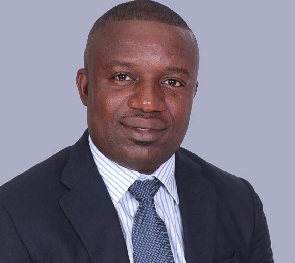 John Jinapor is former Deputy Energy Minister
John Jinapor is former Deputy Energy Minister
A member of the Finance Committee in Parliament, John Jinapor, has blamed President Nana Addo Dankwa Akufo-Addo for the country’s current economic problems. According to him, the government’s borrowing has been the main factor contributing to the country’s woes. He cautioned the government to desist from borrowing if Ghana wants a solution to its problems. “The [crisis] is a Nana Akufo-Addo problem. There is a problem and what we are witnessing now is unprecedented. Something must be wrong somewhere because of excessive borrowing. We are borrowing as if there is no tomorrow. Going forward, the government must move away from reckless borrowing”, John Jinapor is quoted by myjoyonline.com. John Jinapor stated that the government must ensure that it institutes policies that go beyond the short term and can be useful in the long term. “Managing an economy is not only about today but the short, medium, and long term. If you borrow and invest it in productive sectors, it spurs economic growth, creates jobs and generates more revenue, and can deal with the headwinds”, he added. Ghana’s current debt stock stands at 402billion as of July 2022. The World Bank in its latest report said the country’s debt stands at 104% of GDP. Watch the latest episode of BizTech below:
A member of the Finance Committee in Parliament, John Jinapor, has blamed President Nana Addo Dankwa Akufo-Addo for the country’s current economic problems. According to him, the government’s borrowing has been the main factor contributing to the country’s woes. He cautioned the government to desist from borrowing if Ghana wants a solution to its problems. “The [crisis] is a Nana Akufo-Addo problem. There is a problem and what we are witnessing now is unprecedented. Something must be wrong somewhere because of excessive borrowing. We are borrowing as if there is no tomorrow. Going forward, the government must move away from reckless borrowing”, John Jinapor is quoted by myjoyonline.com. John Jinapor stated that the government must ensure that it institutes policies that go beyond the short term and can be useful in the long term. “Managing an economy is not only about today but the short, medium, and long term. If you borrow and invest it in productive sectors, it spurs economic growth, creates jobs and generates more revenue, and can deal with the headwinds”, he added. Ghana’s current debt stock stands at 402billion as of July 2022. The World Bank in its latest report said the country’s debt stands at 104% of GDP. Watch the latest episode of BizTech below: